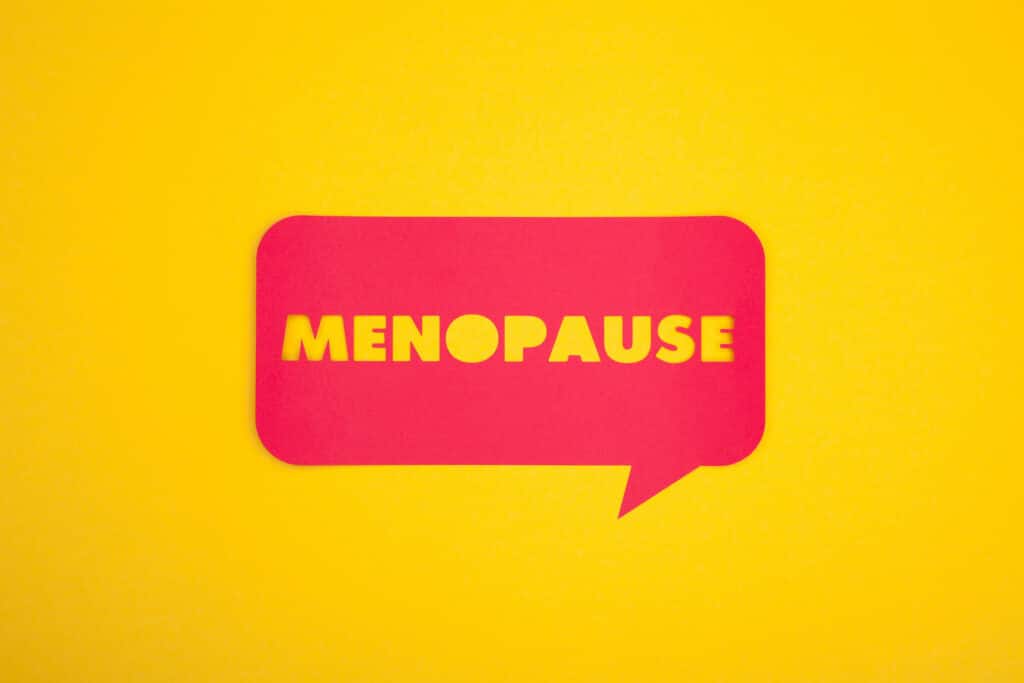To define menopause, it is a natural and biological phenomenon that occurs when a woman doesn’t get her period for 12 consecutive months. The symptoms of menopause start to show up much before, in the perimenopause or transition phase, that’s the time before menopause. Your body goes through several changes due to the low estrogen levels, which takes a toll on both your physical and mental health.

Now, those were facts, but menopause still seems to be a mystery to many, and the myths about the same are umpteen. Menopause isn’t any rocket sign. Here we are to demystify menopause and make the phenomenon easily understandable to those who think it to be something severely complicated.
In This Article
What is Menopause? What are Its Stages? – A Simplified Explanation
As mentioned above, menopause is that point of time in a woman’s life when there has been no menstrual cycle for 12 months in a row. It doesn’t happen out of the blue but is a slow and gradual process that happens over a certain period. It can be divided into three stages.
- Perimenopause – Also called the menopause transition phase, it begins around 8-10 years before menopause. The ovaries begin to produce low amounts of estrogen in the perimenopause phase. The drop in estrogen level is at its peak in the last two years of perimenopause. The average age for perimenopause is 40-44 years. But women can experience it in their 30s or even as late as in their 50s.
- Menopause – The end of the perimenopause phase means the beginning of perimenopause. This marks the end of a woman’s menstrual cycle. The estrogen levels are drastically low then as the ovary stops producing any more of this hormone.
The average age for menopause in the United States is 51 years, but it can happen a little early or late as well. Menopause occurring before 45 is early menopause. While it happens before 40 is premature menopause.
Surgical removal of the ovaries and or uterus, and chemotherapy, are some of the reasons for early or premature menopause.
- Postmenopause – Going without periods for twelve full months means menopause has started. The period after menopause is the postmenopause phase. It begins after menopause and lasts for life.
What Are the Symptoms of Menopause?
The symptoms of menopause start in the perimenopause or menopause transition phase. It continues up to menopause and even after it. After you have transitioned to menopause and stepped into the postmenopause stage, the symptoms could last for a good 4-5 years on average.
However, the frequency, severity, and intensity decrease with time. This, however, varies from one woman to the other. Some women have reported the symptoms to last longer, though.
Some of the most common symptoms of menopause are listed as follows:
- Hot flashes
- Night sweats
- Vaginal dryness
- Irregular periods and flow (in the perimenopause phase)
- Moods swings
- Troubled sleeping
- Dry skin
- Hair thinning
- Fullness of breasts
- Increased stress
- Chills
Not all women face the same symptoms with the same intensity. It differs from one woman to the other. Like, some could be troubled by the recurrent episodes of hot flashes. Whereas a few could find it difficult to cope with vaginal dryness and dried skin.

Demystifying Menopause: Understanding Some of the Facts About Menopause
The myths and misconceptions of menopause have made it a scary affair indeed. No wonder most women consider menopause as one of the most difficult phases of life indeed. Let’s talk about some of the most important points related to menopause that are mostly blown out of proportion and presented in a manner that appears scary. Everything happens for a reason. When you know the facts behind the physical changes, you won’t assume facts.
- The Belief – Menopause is All About Hot Flashes
The Facts: True that hot flashes are the commonest and most unpleasant side effects of menopause, seen in 8 of 10 menopausal women [9]. About 75% of the female population experience sudden and irregular increases in body temperature.
It starts in the perimenopause phase, and over 80% of women go through hot flashes for 2 years after menopause. Some, in a small percentage, though, have reported having hot flashes for longer[10]. However, maintaining a proper lifestyle will help to lessen the severity and intensity of hot flashes. You can try the following at home:
- Reduce trigger foods that may lead to hot flashes, like spicy dishes, caffeinated beverages, alcohol, and even smoking.
- Wear light, breathable clothes, or dress in layers to cope with hot flashes in cold environments.
- Keep a jug of water and a fan by your bedside to cool yourself.
- If recurrent episodes of hot flashes are bothering you, then contact the doctor. He might prescribe medicines.
- The Belief – Menopause Comes After 50
The Facts: There’s no denying that the average age for menopause is 51. But the time frame for the same is from 45-55 years. So, depending on a woman’s body stature, and overall health, menopause can happen before 50 as well may be at 48 or 49. However, menopause before 45 and 40 are early and premature menopause. While early menopause might occur in 5% of the female population, premature menopause is rare in just 1% of women.
- The Belief – Menopause Is One of the Most Stressful Phases of Life
The Facts: When someone says that menopause means one of life’s most stressful phases, then she isn’t wrong. When you have your hormones all over the place, your physical health goes for a toss. It’s quite natural to feel agonized and stressed. But you could certainly make your life better when you know how to manage stress during menopause.
Here are some quick tips for you to manage stress during and after the menopausal phase:
- Exercise helps you stay fit physically, and mentally. When you engage in strenuous physical activities like dancing, cycling, and running your brain’s endorphin production increases. Endorphins are the hormones that brighten your mood. This helps to lower stress levels.
- Practice yoga and even go for relaxation techniques which include meditation to keep your body and mind calm and relaxed. In fact, whenever you are stressed, resort to deep breathing, which involves inhaling through the nose and exhaling through the mouth.
- Going for a massage in the perimenopause, menopause, and postmenopause phase would help to reduce muscle stiffness, and tension, making you feel calm, relaxed, and rejuvenated. This is a good remedy, indeed when you’re having a stressful time.
- Thinking and talking positively will for sure help you feel better. Find that one person whom you can confide in like a friend, relative, partner, therapist, and so on. You could even join online menopause groups. There you’ll find like-minded women to speak your heart out.
- The Belief – Your Sex Life Goes For a Toss
The Facts: This varies from one person to the other. Your sex life may not be as before, perhaps due to the vaginal dryness attributed to the low estrogen levels coming your way. To solve this problem, a proper vaginal lubricant may help.
However, some women mention enjoying sex more; perhaps the thought of getting pregnant isn’t there anymore. Talk out your problems with your partner.
The list of assumptions and apprehensions about menopause is endless. They may not be completely baseless. But there’s always a way to manage your symptoms by living a quality life.
Conclusion
So here menopause has been demystified for you. It isn’t the most difficult riddle of life to solve. Rather, menopause is one of the many challenges life throws at you (if you are a woman). The skill lies in how effectively you accept the same and sail through it smoothly.






